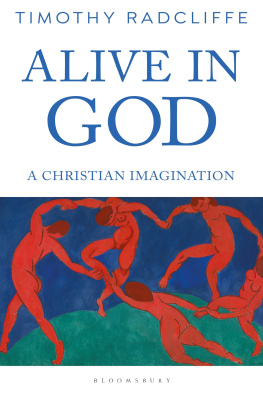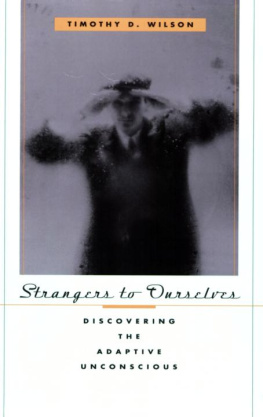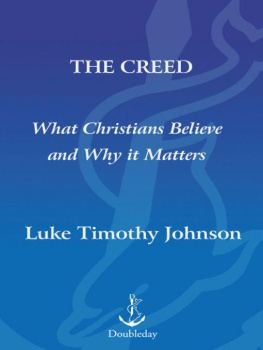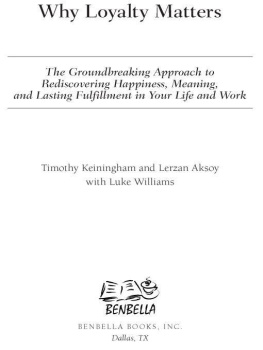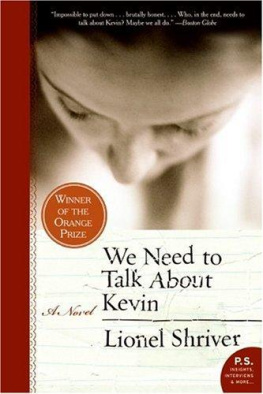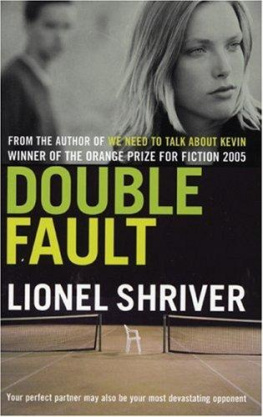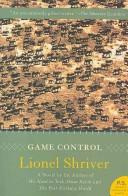Timothy Shriver - Fully Alive: Discovering What Matters Most
Here you can read online Timothy Shriver - Fully Alive: Discovering What Matters Most full text of the book (entire story) in english for free. Download pdf and epub, get meaning, cover and reviews about this ebook. year: 2014, publisher: Farrar, Straus and Giroux, genre: Home and family. Description of the work, (preface) as well as reviews are available. Best literature library LitArk.com created for fans of good reading and offers a wide selection of genres:
Romance novel
Science fiction
Adventure
Detective
Science
History
Home and family
Prose
Art
Politics
Computer
Non-fiction
Religion
Business
Children
Humor
Choose a favorite category and find really read worthwhile books. Enjoy immersion in the world of imagination, feel the emotions of the characters or learn something new for yourself, make an fascinating discovery.

- Book:Fully Alive: Discovering What Matters Most
- Author:
- Publisher:Farrar, Straus and Giroux
- Genre:
- Year:2014
- Rating:3 / 5
- Favourites:Add to favourites
- Your mark:
- 60
- 1
- 2
- 3
- 4
- 5
Fully Alive: Discovering What Matters Most: summary, description and annotation
We offer to read an annotation, description, summary or preface (depends on what the author of the book "Fully Alive: Discovering What Matters Most" wrote himself). If you haven't found the necessary information about the book — write in the comments, we will try to find it.
Fully Alive: Discovering What Matters Most — read online for free the complete book (whole text) full work
Below is the text of the book, divided by pages. System saving the place of the last page read, allows you to conveniently read the book "Fully Alive: Discovering What Matters Most" online for free, without having to search again every time where you left off. Put a bookmark, and you can go to the page where you finished reading at any time.
Font size:
Interval:
Bookmark:

The author and publisher have provided this e-book to you for your personal use only. You may not make this e-book publicly available in any way. Copyright infringement is against the law. If you believe the copy of this e-book you are reading infringes on the authors copyright, please notify the publisher at: us.macmillanusa.com/piracy.
To my familiesthe one my parents gave me, the one Linda and I created, and the thousands from New Haven to New Delhi who have welcomed me as one of their own. Family is a blessing anyone can give, and family is a gift that matters most.
The glory of God is a human being fully alive.
Irenaeus
Contents
Introduction: A School of the Heart
The Yale Bowl was already eighty-one years old in 1995, but it looked one hundred seventy-five. Its crumbling concrete walls were overgrown with trees, its warped bench seats painted over dozens of times to withstand the cracking. It wasnt ready to handle seventy-five thousand cheering fans. It wasnt designed for a presidential visit, either, with the massive security requirements, extensive evacuation routes, and shielded spaces a president requires. Nor was the field big enough to hold seven thousand athletes with special needs, along with coaches and volunteers, or to accommodate a stage fit for a stadium show. Parking wasnt adequate, because entire lots had been taken over for other purposesone for a helicopter landing pad for the president, others for makeshift soccer fields, and still others for bus staging.
But we chose the Yale Bowl for the Special Olympics World Games Opening Ceremony anyway. So on the evening of July 1, 1995, the president of the United States, Bill Clinton, and First Lady Hillary Rodham Clinton landed in an adjacent field on Marine 1 while athletes from one hundred fifty countries arrived by bus and paraded through the single entrance tunnel and seventy-five thousand spectators fought their way through neighborhood streets to sit on wooden bleachers and cheer the arrival of the biggest sporting event in the world. It was chaos.
As the athletes arrived at the Yale Bowl that night, each participant was given a disposable camera to record images of his or her triumphant moments. For most of them, the experience of parading into that stadium must have seemed surreal. Coming as they did from institutions and isolated classrooms and lonely corners of despair in villages and towns around the world, most of them would never have been applauded for anything before. They were societys outcasts, lost in the circle of life and rarely found. Over and over, in the countless languages they spoke, they each would have heard retard, defective, sick, delayed, and, maybe worst of all, in-valid. Success experiences were nonexistent. Gentleness in the company of strangers was rare. Acceptance among peers was a distant dream. I am never, one parent of a child with special needs wept, able to be proud of my child.
But this was their night, a star-studded evening just for them. Sandra Bullock was part of the show. So were Bill Cosby, Jean-Claude Van Damme, and Louis Gossett, Jr. A thousand-voice choir assembled below almost two hundred international flags and welcomed the athletes as they paraded into the stadium. Native Americans on horseback charged around the perimeter in a ceremonial pageant of celebration. Aerial flybys of fighter jets boomed overhead in their honor. The greatest soccer player in the world, Pel, walked with them and stood for a thousand pictures. Hootie & the Blowfish sang their number one hit Only Wanna Be with You. The supermodel Kathy Ireland cheered. The hip-hop stars Naughty by Nature and Run-DMC made the stadium explode with energy.
One heroic Special Olympics athlete, Loretta Claiborne, was selected for a major role: to introduce the president to the massive crowd in the stadium and to the national television audience. The Secret Service had insisted the president address the crowd from the top of the stadium. Perimeter security at the Yale Bowl was porous, and the athletes had not been screened through metal detectorsthere was no way the president was going to be allowed to walk down onto that field to mingle; no way he was going to stand onstage in the middle of that stadium, given the security unknowns. Instead, he was going to have to speak from one of the highest vantage points above the athletes and trust the television monitors to project his image on the jumbotron.
Midway through the opening ceremony, Loretta rose from her perch atop the Yale Bowl. Ladies and gentlemen, she bellowed, her voice rising with an excitement bordering on glee, the president of the United States, Bill Clintonnnnnn! The crowd roared. For the first time in its thirty-year history, a president was in attendance at Special Olympicssmiling, waving, and applauding the athletes. The stadium may have been old, but in that moment, it was electric.
Down on the field, a professional photographer watched as a group of athletes clad in African dress raised their disposable cameras to take pictures of the president. But there was something peculiar about it. All of them, he realizedand there mustve been a dozenheld their cameras backward, the lenses flush against their noses as they peered through the viewfinders. Clearly, he thought, they had never used cameras before. As Clintons voice boomed across the stadium, the photographer burrowed through the crowd to get closer to the athletes, to help them avoid wasting all their film on blurry images of their own faces.
Not knowing whether they spoke English, he gestured to one of the athletes to lower his camera. Youre trying to get a picture of the president? he asked. The athlete didnt replyjust looked at him, apparently unable to speak or to understand. Yes, youre trying to get a picture of Clinton and hes way up there, but you have to turn the camera around. Let me show you. The photographer flipped the direction of the camera. You see, you have to point the lens toward the president and then look through the viewfinder, and then you can get a good picture of him.
Oh, said the athlete, in clear and conversational English. Thank you, sir. But may I show you something? If you turn the camera around and hold your eye up to the viewfinder and look backward, it still works. It works like a telescope and you can see the president very clearly. So were using these little cameras so we can get a good view of the president. But thank you for helping us.
The photographer was speechless. His mouth must have hung open as he looked into the eyes of that unnamed athlete. The athlete simply said that the camera works in reverse, that was allbackward, it still works. But the photographer couldnt help feeling surprise and embarrassment: hed had it all wrong. Hed assumed his own knowledge as a professional was superior, that a disabled man needed his help. But this man standing in front of him wasnt incompetent or stupid at all.
In that small moment amid the chaos of noise and humanity, it was as though the athlete changed before the photographers eyesor rather, as though the photographers eyes changed as he looked at the athlete. It wasnt the athlete who was reframed; it was the photographer who donned a new lens. In a flash, he saw a different personno longer retarded or hopeless. He saw someone else: a clever young man, a resourceful athlete, a kind person. The label disappeared, as did the traumatic if unconscious history of low expectations. He saw without assuming. Simply put, he saw from within.
There is a tension in this story that fascinates me and always will. Who was changed in this moment? Who was disabled and who was gifted? Who was treated to the experience of a lifetime and who did the treating? Who gave and who received?
Next pageFont size:
Interval:
Bookmark:
Similar books «Fully Alive: Discovering What Matters Most»
Look at similar books to Fully Alive: Discovering What Matters Most. We have selected literature similar in name and meaning in the hope of providing readers with more options to find new, interesting, not yet read works.
Discussion, reviews of the book Fully Alive: Discovering What Matters Most and just readers' own opinions. Leave your comments, write what you think about the work, its meaning or the main characters. Specify what exactly you liked and what you didn't like, and why you think so.

